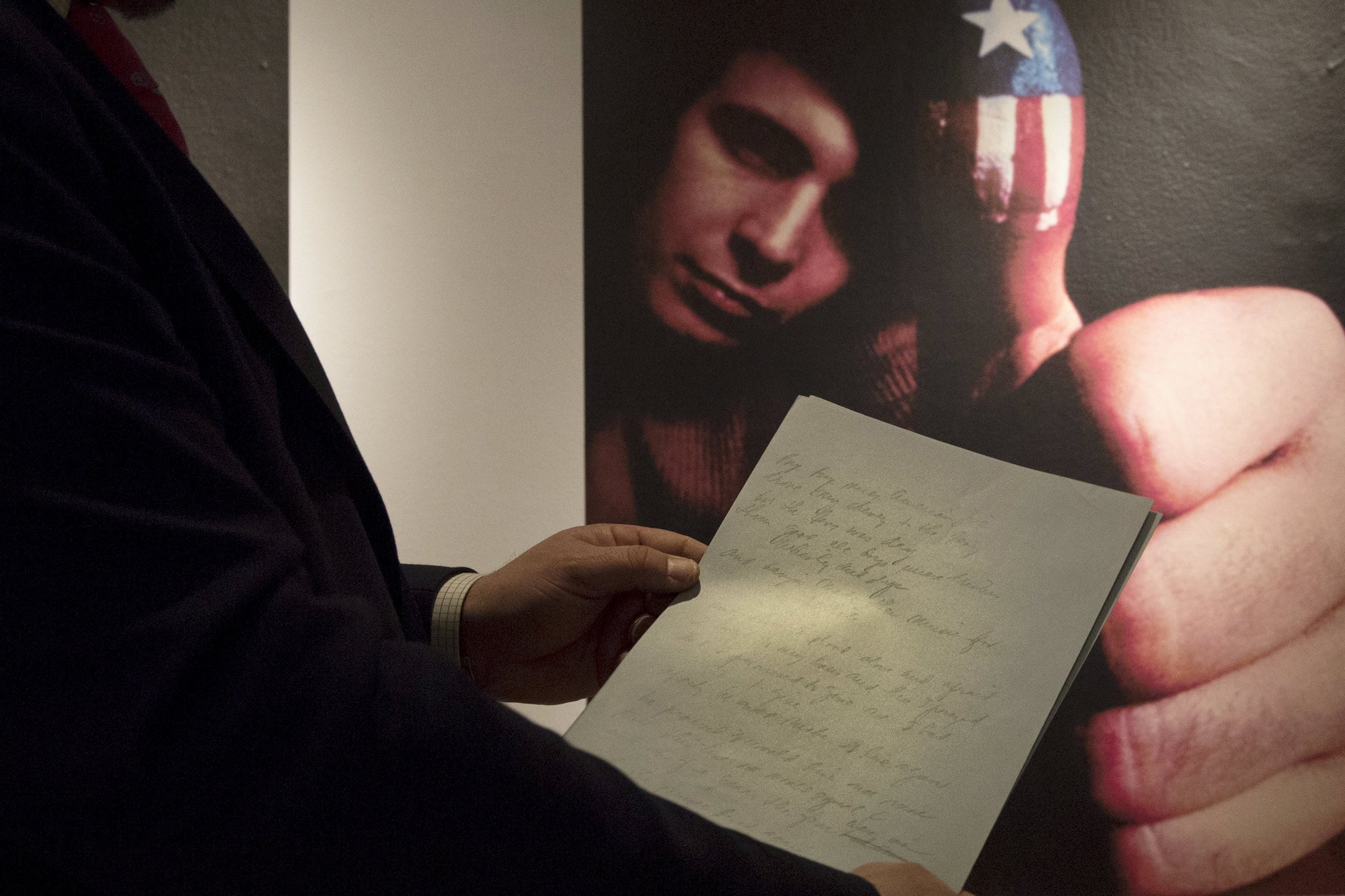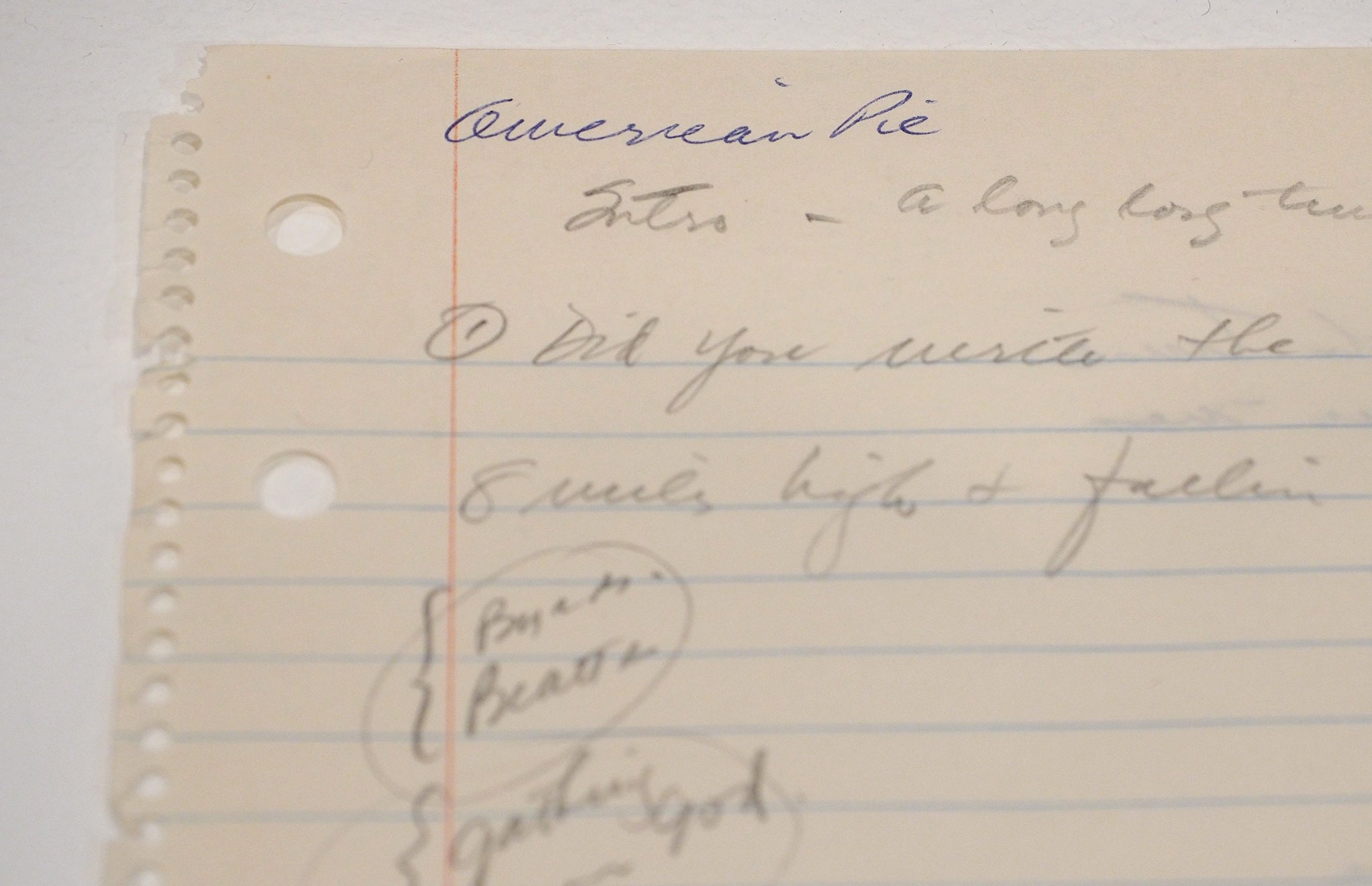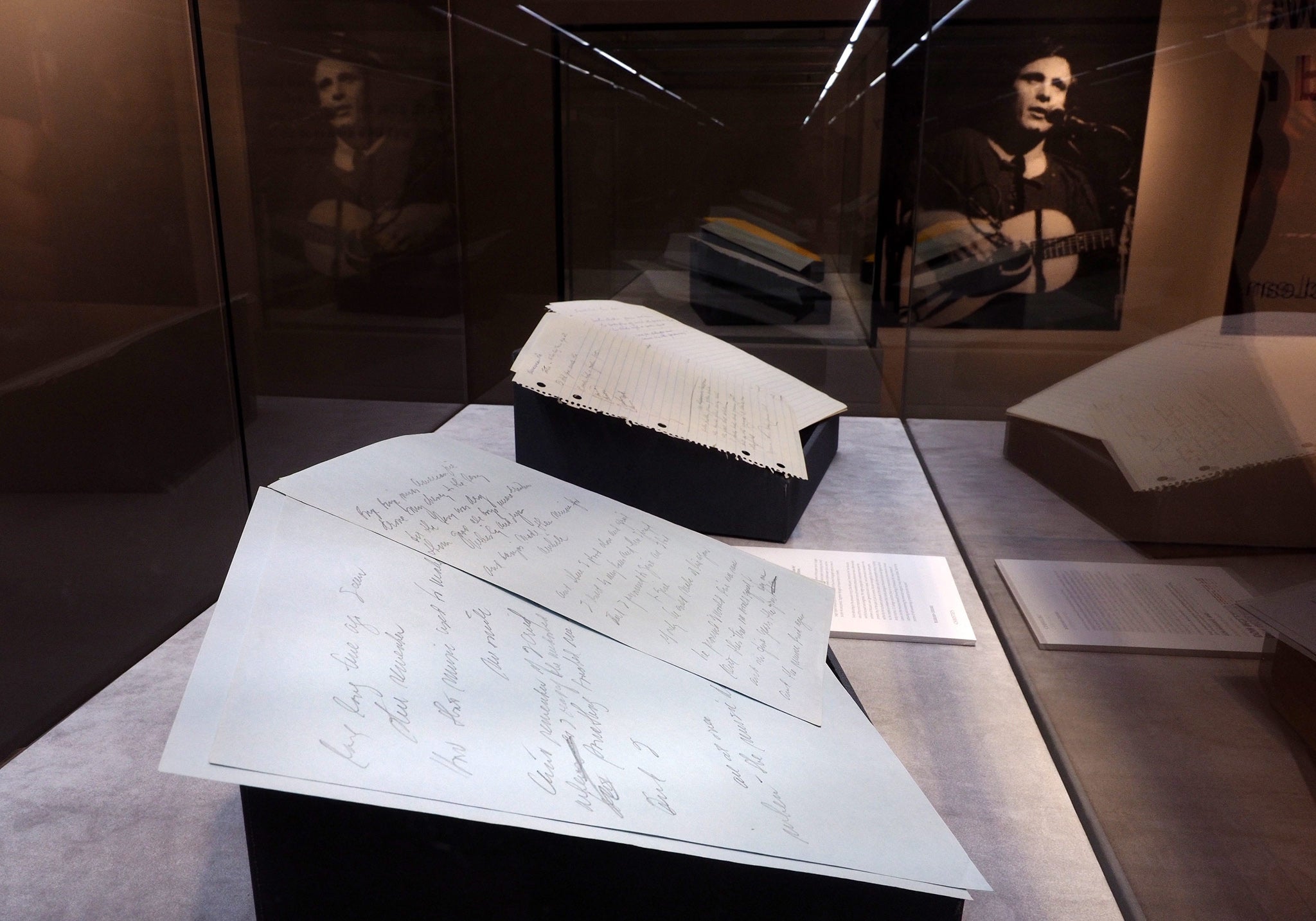Don McLean's 'American Pie' manuscript sells for $1.2 million – but what do the lyrics really mean?
We round-up some popular theories about the meaning of the song

The original annotated manuscript for Don McLean’s legendary song “American Pie” has sold at auction for $1.2 million (£805,000) at Christie’s in New York – but will it shed any further light on what the lyrics really mean?
McLean said he wanted to auction his manuscript 43 years on from the song’s release to show that the lyrics are not just a word game.
“I thought it would be interesting as I reach age 70 to release this work product on the song ‘American Pie’ so that anyone who might be interested will learn that the song was not a parlour game,” he said.
When asked what the song means, McLean has always replied: “It means I never have to work again”. The singer may now have to come up with a different answer depending on what his manuscript reveals.
Comment: American Pie lyrics revealed: Sometimes it's better not to know the meaning
What does 'American Pie' really mean?
‘So bye, bye Miss American Pie’
This line is among the most enigmatic and is thought to represent archetypal America. “Miss American pie is as American as apple pie”, says Jim Fann, author of Understanding American Pie.
“Miss American Pie” also refers to American pageant queens and harks back to the more innocent era of the Fifties that McLean is nostalgically trying to evoke in his 1971 track.
Others have claimed “Miss American Pie” was the name given to the plane that killed Buddy Holly, Ritchie Valens and The Big Bopper.

‘I can’t remember if I cried / When I read about his widowed bride / But something touched me deep inside / The day the music died’
McLean acknowledged he did learn of Buddy Holly’s death in February, 1959 “with every paper I delivered” while doing his paper round as a boy.
Enjoy unlimited access to 100 million ad-free songs and podcasts with Amazon Music
Sign up now for a 30-day free trial. Terms apply.
ADVERTISEMENT. If you sign up to this service we will earn commission. This revenue helps to fund journalism across The Independent.
Enjoy unlimited access to 100 million ad-free songs and podcasts with Amazon Music
Sign up now for a 30-day free trial. Terms apply.
ADVERTISEMENT. If you sign up to this service we will earn commission. This revenue helps to fund journalism across The Independent.
The song’s first verse is thought to refer to the singer's death and the end of an era for Fifties music in America, as well as the age of innocence and sugar-coated optimism it represented.
‘Did you write the Book of Love / And do you have faith in God above / If the Bible tells you so’
‘The Book of Love’ is thought to refer to the 1958 rock and roll hit of the same name by the Monotones, while Don Cornell wrote “The Bible Tells Me So” in 1955.
The verse builds up to the Swinging Sixties and foreshadows an era in which hedonism replaced religion.
‘When the jester sang for the King and Queen / In a coat he borrowed from James Dean’
Some have likened Bob Dylan as the jester, Peter Seeger as the king and Joan Baez as the Queen. On the cover of Dylan’s 1963 album Freewheelin’ he wears a red jacket similar to one worn by James Dean in Rebel Without A Cause. The King could also refer to Elvis Presley.
‘And while Lennon read a book on Marx / The quartet practised in the park / And we sang dirges in the dark / The day the music died’
By the end of the third verse, McLean remembers John Lennon and The Beatles becoming more politicised with songs like “Revolution” (1968) as their music side-lines the likes of Bob Dylan and Buddy Holly (‘With the jester, on his side-lines in a cast’).

‘Helter Skelter in a summer swelter’
This line is thought to refer to The Beatles track “Helter Skelter”, which was cited by serial killer Charles Manson as part of his “vision”. The fourth verse paints a picture of moral disruption as the Sixties counterculture movement becomes increasingly radicalised.
‘So come on, Jack be nimble, Jack be quick / Jack Flash sat on a candlestick’
The Rolling Stones take centre stage in the penultimate verse of McLean’s ode to the demise of American folk music. “Jack be nimble” refers to the Stones’ psychedelic song “Jumpin’ Jack Flash”, while the line ‘Oh, and as I watched him on the stage’ is thought to be about the Altamont rock concert the Stones played in 1969 that ended in violence and four deaths.

‘I went down to the sacred store / Where I heard the music years before, but the man there said the music wouldn’t play’
In the song’s final verse, McLean looks on at an America that has brought destruction on itself (‘The church bells all were broken’) and in a more literal sense at a country where music of the Fifties is no longer played.
It is thought that the ‘girl who sang the blues’ is meant to be Janis Joplin, “whose death in 1970 of a heroin overdose seemed to reinforce the failures of the [counterculture] movement”, according to Fann.
Join our commenting forum
Join thought-provoking conversations, follow other Independent readers and see their replies
Comments